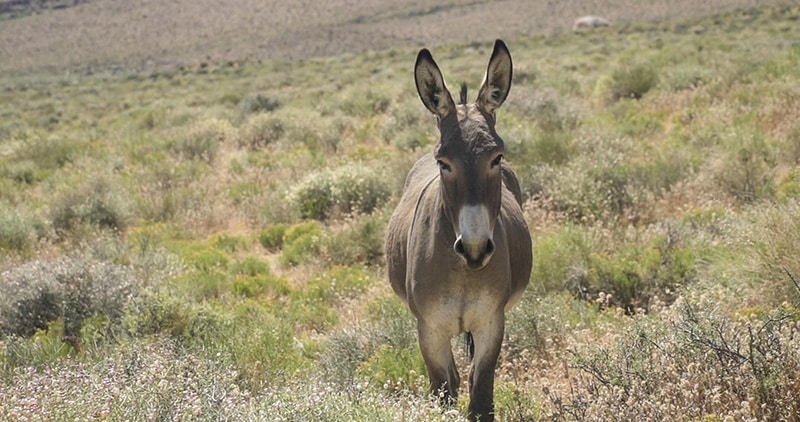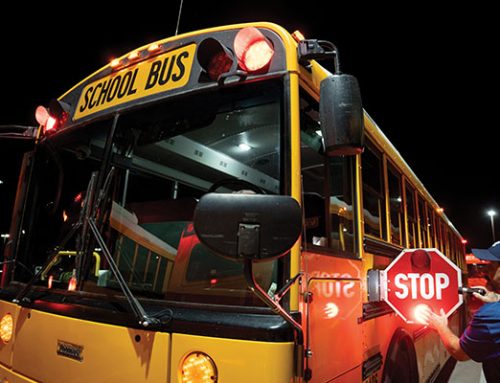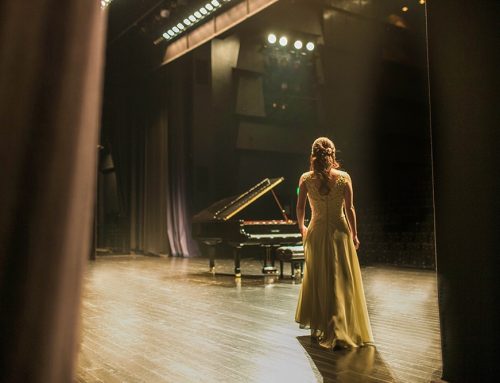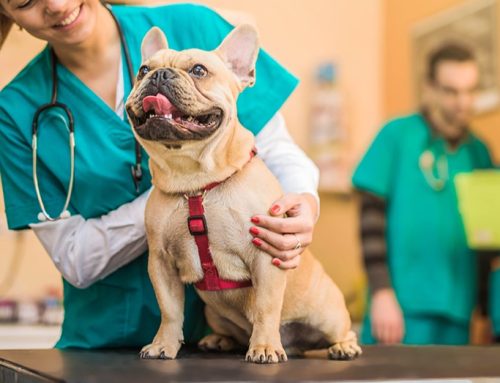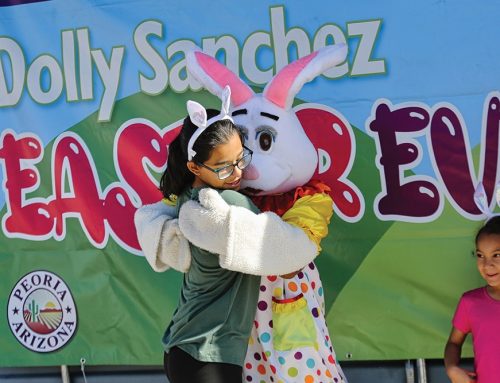By Lisa Smith, Founder of Loco for Long Ears and Volunteer Ambassador for American Wild Horse Conservation
Photo courtesy of American Wild Horse Conservation
What are burros? Burros are wild donkeys. Arizona has more burros than any other state. This is due to our rich mining history. Once miners no longer needed their donkeys to do the heavy work, they set them free in the desert.
Burros are intelligent and adapt well to their surroundings. They dig water wells in the desert. These wells can go as deep as 6 feet! Native wildlife species such as javelina, deer, various birds, bobcats, and mountain lions have an easier time finding water, thanks to the burros. Even grazing cattle benefit from these desert diggers.
While it may be hard for us modern-day “Valley Dwellers” to relate to Arizona’s old mining days, the descendants of those hard-working donkeys are not too far away. If you have visited Lake Pleasant, there’s a good chance you have seen some burros there. These burros belong to the Lake Pleasant Herd Management Area (HMA). An HMA is designated land for burros or wild horses. HMAs are managed by the Bureau of Land Management (BLM). In accordance with the Wild Free-Roaming Horses and Burros Act of 1971, these animals are federally protected. This means that no one is permitted by law to remove a federal wild burro. This is decided at the sole discretion of BLM.
Some people find burros cute, so they feed them to have a closer look. Others feel bad for burros when they see them in the desert, thinking they have no food, and also decide to feed them. This is not acting in the best interest of the burros or humans. Burros are not domesticated donkeys and are not used to eating human food. To put it simply, human food can cause severe gastrointestinal distress or hoof problems that can lead to death. In addition, burros that are fed by humans will learn to recognize that humans and vehicles are sources of food. This increases their chances of being struck by a vehicle. No one wants to hit an animal on the road, total their vehicle, or have their family injured. It is best to never stop your vehicle on the side of the road or in the desert to feed burros. You may just save a life one day by not feeding burros.
Loco for Long Ears is an educational and awareness group for burros founded in Vistancia. As volunteers, we work alongside the city of Peoria, the American Wild Horse Conservation, the BLM, and rescues in Arizona. We seek to keep burros safe, which in turn keeps humans safe. We work hard to reduce burro vehicle collisions in Peoria communities and around Lake Pleasant. We strive to improve communication between our neighbors and responsible jurisdictions, including the BLM. We report broken fence lines to the appropriate jurisdictions for repairs and ask for more effective signage. We make phone calls to the city of Peoria and have meetings with legislators. We need more volunteers to help us bray for burros. They cannot speak for themselves so we must do the talking and act.
There is more to helping burros than educating neighbors and preventing burro vehicle collisions in our community. It’s time to face some hard facts. The United States is the third-largest importer of ejiao in the world. We are only behind China and Hong Kong. Ejiao, pronounced uh-gee-yow, is the gelatin made from boiling the skins of burros. It is used in alternative medicine and cosmetics. The global demand for burro skins is approximately eight to 10 million per year! Burros are brutally slaughtered, after being transported long distances without water or food. This isn’t only a problem for the United States. If you follow burros back to their roots in Africa, donkeys are stolen from families to enter the ejiao black market trade.
Imagine the hardships these families endure when they lose their donkeys. These beasts of burden support them in their day-to-day lives and are still a source of transportation, while also being their companions. When the donkeys are gone, the women and/or children in these families tend to be the ones transporting heavy firewood and fetching water. This often results in lost income for women and children missing school.
How can you help burros? Get involved with your local community. Make time to volunteer with Loco for Long Ears and other groups near you. If you enjoy hiking, perhaps you can keep an eye out for damaged fences. Do you see where signage can be improved on our roads? Speak up. Do you want to help care for burros that survive vehicle collisions? Find a local rescue so you can make a difference. Communicate with your legislators on both the local and federal levels. Push for the support of The Ejiao Act of 2023 in Congress, H.R.6021. It takes a few minutes to ask your legislator to co-sponsor this bill. It would ban the knowing sale or transportation of ejiao. We really can find strength in numbers when we partner with those who care.
To send a message to congress to sponsor the Ejiao Act to stop the donkey skin trade, visit americanwildhorse.org/demand-congress-sponsor-ejiao-act-stop-donkey-skin-trade.
If you are interested in volunteering with Loco for Long Ears, email [email protected]. For more information, visit Loco for Long Ears at their Facebook page at https://tinyurl.com/mfrhwms2.

